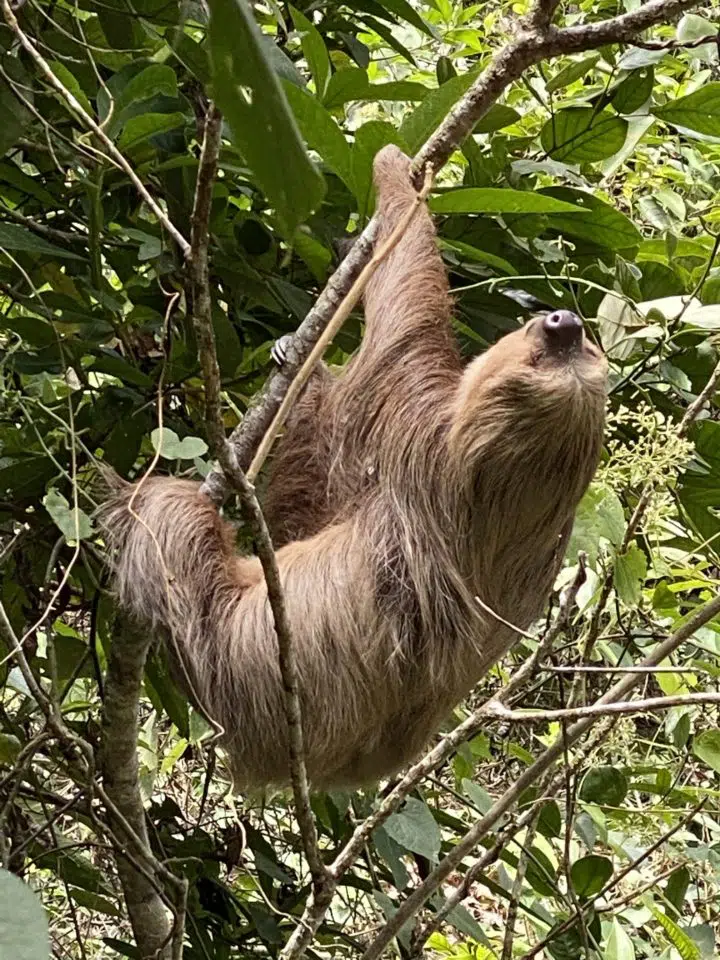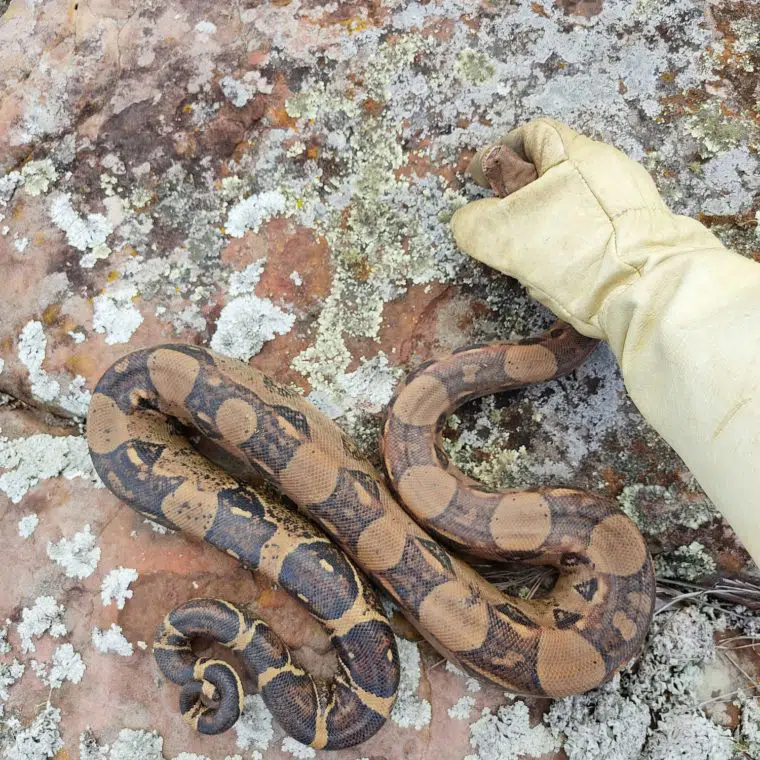Animals have found a home and special sanctuary on a very unique cannabis farm in Colombia.
Despite their mutual love for all things green, cannabis cultivators and environmentalists aren’t always on speaking terms. If left unregulated or badly managed, cannabis farms can take a pretty hefty toll on the surrounding ecosystem. In California, for instance, many rivers run dry during the summertime because trespass growers divert water to their facilities, endangering the state’s salmon and trout populations.
The same goes for foreign countries exporting their cannabis, like Colombia. Health Europa editor and Colombia Cannabis investor Matt Youkee wrote that, while the country’s isothermal climate may be optimal for cultivation, the quality of its soil is not as good. Anecdotal evidence from growers claims that strains “struggle to adapt to soils tainted by previously unencountered pesticides and tropical pests.”

As the agricultural vice president of Flora Growth and general manager of the corporation’s picturesque cannabis farm in the Andes-enveloped Colombian town of Bucaramanga, Javier Franco can recite the plant’s ideal growing conditions in his sleep. “It’s 18 degrees Celsius at night, 26 during the day,” he said over Zoom. “About 72 percent humidity, and one-half-mile-per-hour coastal winds.”
As VP and GM, Franco also knows a thing or two about the importance of sustainability for cannabis producers, not to mention the somewhat poor example set by his direct competitors. Within a 20 miles radius from where Franco conducts this Zoom interview, there are about six to seven farms, he said, none of which respect the local flora and fauna as much as he does.
Franco’s farm covers some 361 acres. Next door is the forest, whose residents frequently hop, crawl, or fly on over for a surprise visit. Every morning, Franco is greeted by sloths that watch him work from the treetops. From 5 to 6 p.m. sharp, a family of porcupines can be found scuttling around the farm’s perimeter and—on a good day—playing with the guards stationed there.
Animals as Friends and Helpers
Franco has also been keeping track of the number of species of snake he’s encountered among the flowers. So far, he’s at seven. The species that seems to like his farm the best are the non-venomous but still pretty dangerous boa constrictor, which kills its prey by smothering it with its 10-foot-long body and populates the jungles of many South American countries.
When Franco isn’t on the farm, he asks two environmental engineers stationed there to keep an eye out for the critters. Together, they keep a detailed list of the animals that visit the farm, along with the times at which they usually show up. Franco instructs his growers to be respectful towards the animals, as they are but guests in their world. He also knows that their well-being is intimately tied up with the success of Flora Growth’s farm.
“The only thing we want is to provide our customers with a natural, organic product,” Franco explains. “Something that’s actually from nature.” In order to do that, Franco and his growers have to make sure that their cannabis grows in a place that resembles the plant’s natural environment as closely as possible, with little to no interference from man and their tree-killing ways.
Nowadays, cannabis is often grown indoors, where cultivators become chemists, and gardens are turned into labs. Though Franco respects the art and science behind this kind of micromanagement, he doesn’t think it’s the best way to go. “When you grow indoors, you want to have control of everything. But, in doing so, you also take out the symbiotic interactions between the animals and the microbiology.”
At this point in the conversation, Franco made a circle with his index finger and asked me to guess how many microorganisms live in a piece of dirt no wider than an inch. The answer, he revealed, can lie anywhere between 10,000 and 30,000 unique species, depending on the quality of the soil. Franco likened cannabis to wine in this regard; a fine wine isn’t prepared indoors, but grown in a vineyard under the French sun.
Cannabis is, at the end of the day, a crop, and—like with any crop—many of its growers frequently use harmful pesticides to defend plants against unwanted intruders from the outside world. So, these growers guard their precious cargo with rodenticide and carbofuran, a teaspoon of which could take down a bear.
Not only is Flora Growth a pesticide-free enterprise, but the farm employs wildlife to keep the flowers safe from pests. Ladybugs (known to Spanish speakers as mariquitas) eat spider mites, which have been the undoing of many
a cultivator. Franco calls these bugs his “greatest ally” and a sign that his plants’ glucose levels are where they’re supposed to be. Anteaters, which also roam the farm, eat—you guessed it—ants, making insecticides like Termidor and Taurus obsolete.
Without getting too pedantic, I feel like has always helped people become more in tune with Mother Nature. Think about the endless hours you’ve spent watching parades of clouds or nettled treetops blowing in the wind while enjoying a good spliff. It’s only fitting that the cannabis industry should strive to be as green as possible, and Flora Growth’s Franco is leading the way towards a future in which people and wildlife can live side-by-side: attracted by the same sweet smell of flower.
Author
High Times Magazine
With Flora Growth as a pioneer in sustainable and wildlife-friendly cannabis cultivation, you can experience a natural and organic product like never before. Embrace the beauty of cultivating cannabis in harmony with Mother Nature and wildlife. Start your journey towards eco-conscious cannabis with Flora Growth‘s pesticide-free strains and browse our collection of premium seeds. For more valuable information on our products and sustainable practices, don’t forget to check out our FAQ. Stay tuned to our PSM Blog Page for ongoing hemp/cannabis education and insights into our wildlife-friendly approach. For any inquiries or further assistance, don’t hesitate to contact us. Let’s create a greener and more harmonious future together. Happy cultivating!


